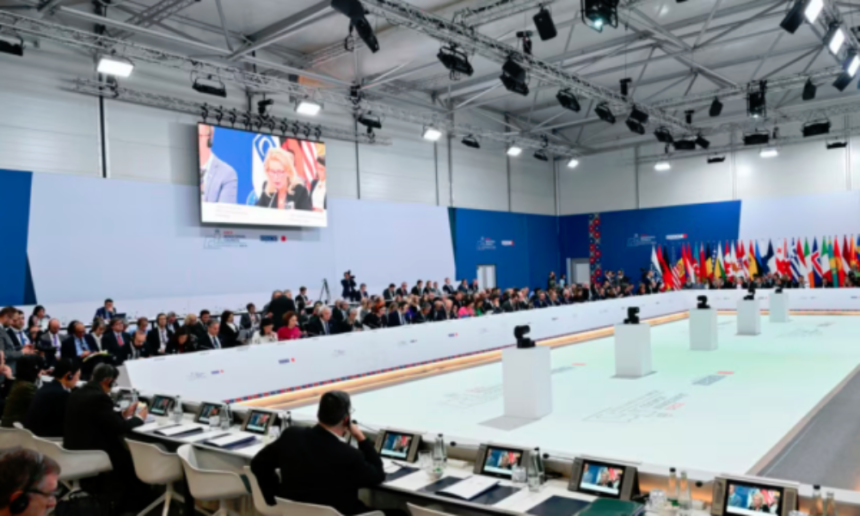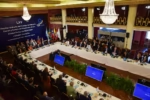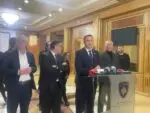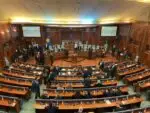Western nations, including the United States, strongly criticized Russian Foreign Minister Sergei Lavrov over the ongoing war in Ukraine during an annual meeting of the Organization for Security and Co-operation in Europe (OSCE) in Malta on Thursday.
Ukraine dominated the political discourse during the meeting of foreign ministers, although officials were also expected to approve several agreements related to security and human rights, with the West frequently accusing Russia of violations of international norms.
Polish Foreign Minister Radoslaw Sikorski delivered a firm message to the Russian delegation: “We are not deceived by your lies. We know what you’re doing. You are trying to rebuild the Russian empire, and we will not let you. We will resist at every step.”
Ukrainian Foreign Minister Andrii Sybiha emphasized that his country was fighting for its right to exist. “The Russian war criminal at this table must know: Ukraine will win this right, and justice will prevail,” he said.
Sikorski, Sybiha, and others walked out during Lavrov’s speech, a common practice at international meetings when contentious figures take the floor. Lavrov was absent when U.S. Secretary of State Antony Blinken addressed the assembly.
This marked Lavrov’s first visit to an EU member state since Russia’s full-scale invasion of Ukraine in February 2022. Moscow has frequently blamed the West for the war.
“I regret that our colleague, Mr. Lavrov, left the room without showing the courtesy to listen to us, just as we listened to him,” Blinken stated in his address. “Of course, our Russian colleague is adept at drowning listeners in a tsunami of disinformation.”
No formal meeting was planned between Lavrov and Blinken.
The OSCE meeting, attended by foreign ministers and officials from 57 countries across North America, Europe, and Central Asia, was overshadowed by the upcoming return of Donald Trump to the White House, whose advisors are circulating proposals for ending the war, including potentially ceding large parts of Ukraine.
“Hot War” Concerns
With President-elect Trump set to take office next month, Western powers reiterated their support for Ukraine, while Russia continued to criticize the OSCE. Lavrov had previously stated that the OSCE was becoming an extension of NATO and the European Union.
In his speech, Lavrov compared the current situation to the Cold War, warning that it could turn “hot.” He stated, “We do not want to attack anyone. The United States… is waging war against us by using Ukrainian neo-Nazi forces. They supply them with weapons and help them use long-range missiles against our territory.”
The West and Ukraine strongly reject Lavrov’s analogy with Nazism.
Founded during the Cold War to facilitate dialogue between East and West, the OSCE has recently faced challenges due to Russia’s use of its veto power, especially following the invasion of Ukraine. Diplomatic sources noted that Armenia and Azerbaijan have blocked OSCE’s budget this year due to their conflict over the Nagorno-Karabakh region.
Diplomats also reported that a deal was reached this week to fill four senior OSCE positions, including the role of Secretary-General, which will be taken over by Turkey’s Feridun Sinirlioglu, former foreign minister in a transitional government in 2015.
The crucial decision on the upcoming presidency of the OSCE for the next year has already been made, with Finland set to hold the post in honor of the 50th anniversary of the Helsinki Final Act, the document that laid the foundation for the current OSCE.







